Ireland’s President Michael D. Higgins has called for reduced NATO spending, a stance criticised for being at odds with Ireland’s reliance on NATO members for its security.
While Ireland maintains military neutrality, critics argue that it disproportionately benefits from the resources of NATO allies without making a commensurate contribution to collective defence efforts.
President Michael D. Higgins has criticised the global focus on increased military spending, particularly NATO’s calls for greater investment in armaments, arguing that it diverts resources from essential areas like education, social protection, and health.
Speaking at the 2025 BT Young Scientist & Technology Exhibition, he called for “science without borders built on co-operation in the interest of humanity” to counter the build-up of weaponry and the “rhetoric that calls for war as a state of mind.”
Higgins condemned the prioritisation of war preparations over addressing existential crises like poverty, climate change, and biodiversity loss, urging a shift towards diplomacy and collective humanitarian action.
Who Needs Defending Against?
Ireland’s strategic location in the North Atlantic places it at the crossroads of vital global infrastructure and geopolitical tensions. Recent Russian activity has highlighted specific threats that require robust defence measures. Russian submarines and naval vessels have been detected near Ireland’s undersea fibre-optic cables, which carry 97% of the world’s internet traffic and facilitate €10 trillion in daily financial transactions, often forced to move away by NATO vessels and aircraft.
These incursions raise concerns about espionage and sabotage, as any disruption to these cables could have catastrophic consequences for global communication and financial systems. Additionally, Russian military aircraft frequently enter Irish-controlled airspace without prior notification, endangering civilian aviation and forcing NATO allies, particularly the UK, to respond by deploying fighter jets to intercept and monitor these flights.
Beyond physical incursions, Ireland faces the modern threat of cyberattacks targeting critical infrastructure. As a hub for transatlantic communications, Ireland is a high-value target for adversarial states seeking to disrupt Western economies and communication networks. Russian activities near Ireland mirror broader global trends, such as the suspected sabotage of the Nord Stream pipelines, demonstrating the tangible risks posed by state-sponsored actors.
These examples underline the importance of NATO’s protective measures, which ensure Ireland’s sovereignty and safeguard infrastructure critical not just to Ireland but to the global community.
Airspace Surveillance and Defence
Ireland lacks its own fleet of fighter jets capable of intercepting unidentified or hostile aircraft within its airspace. This critical gap is filled by the United Kingdom’s Royal Air Force (RAF), which frequently undertakes air policing duties. Russian military aircraft are known to operate in the region without filing flight plans or communicating with air traffic control, posing risks to civilian aviation.
NATO countries like the UK have been stepping in to mitigate these risks, often at their own expense. The UK Defence Journal highlights how RAF Typhoon fighters routinely intercept Russian bombers approaching Irish airspace, a task Ireland is currently unable to manage independently.
Maritime Security and Undersea Cable Protection
Ireland’s maritime challenges are no less significant. Its vast Exclusive Economic Zone (EEZ) is a hub for undersea fibre-optic cables that carry 97% of global communications and facilitate €10 trillion in financial transactions daily.
These cables, vital for global communications and financial systems, pass through Irish waters, yet the country lacks the naval resources to monitor or protect them effectively. Russian submarines have been detected in the vicinity of these cables, raising alarms about potential sabotage or surveillance activities, something Russia has been doing to Baltic states recently.
To address this, NATO allies, including the UK, France, and Norway, have intervened. Advanced vessels like the Royal Navy’s RFA Proteus have been deployed to monitor and protect the cables.
Cybersecurity and Infrastructure Protection
Ireland’s strategic position has also made it a focal point for cybersecurity threats. NATO collaborations, such as its Critical Undersea Infrastructure Protection Cell, have provided Ireland with expertise and coordination to address modern threats. However, Ireland’s limited capabilities in this area leave it reliant on external support. The Tánaiste, Micheál Martin, recently emphasised the urgency of bolstering defences for critical infrastructure, highlighting Ireland’s vulnerabilities in a rapidly evolving threat landscape.
NATO maritime patrol aircraft monitoring waters near Ireland
NATO’s role in protecting Ireland extends to assisting with technological advancements and coordination in safeguarding digital and physical infrastructure. This has included joint operations and advanced monitoring techniques to counter threats in real-time.
Debate Over Neutrality and Defence Spending
Ireland’s reliance on NATO allies has sparked a growing debate about its long-held policy of neutrality. Critics argue that neutrality has allowed Ireland to benefit disproportionately from NATO’s resources, burdening member states that are already stretched thin.
Ireland’s defence spending remains among the lowest in Europe, even as it occupies a strategically significant position on the transatlantic route.
Ireland’s Defence Review urges stronger defence capabilities
Journalist Yaroslav Trofimov also pointed out the irony, stating that “Ireland, whose safety is de-facto guaranteed by NATO, not only rides for free but also grandstands lecturing others who, unlike her, don’t have the luxury of being an island off an island.”
Recent Developments and Recommendations
Recent incidents have highlighted the critical nature of Ireland’s reliance on NATO. For instance, joint patrols involving Irish and NATO forces have targeted suspicious activities near undersea cables, while Ireland’s participation in NATO-supported maritime exercises has bolstered its security efforts. However, these measures also underscore the gaps in Ireland’s capabilities.
Experts recommend several measures to enhance Ireland’s security:
- Modernising the Naval Service: Expanding the fleet and acquiring advanced surveillance equipment, including underwater drones and sonar systems, to better patrol and monitor Ireland’s EEZ.
- Increased NATO Collaboration: Actively participating in initiatives like NATO’s Critical Undersea Infrastructure Protection Cell to leverage allied expertise while contributing to collective security.
- Cybersecurity Investments: Developing advanced systems to protect Ireland’s digital and physical infrastructure from cyber and physical threats.
Ireland’s reliance on NATO allies for air defence, maritime security, and cybersecurity highlights the contradictions in its stance as a militarily neutral nation. President Higgins’ calls for reduced NATO spending have brought these contradictions into sharp relief, reigniting debates over Ireland’s defence policies and the adequacy of its investment in security.
IMAGE Quirinale.it, Attribution, via Wikimedia Commons



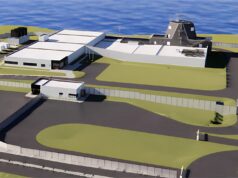
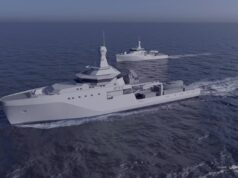
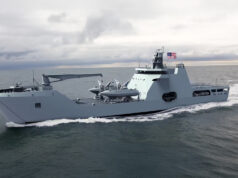
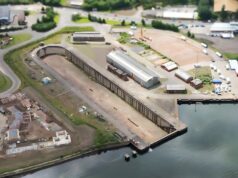
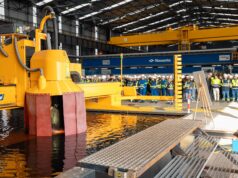
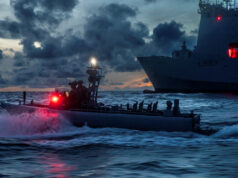
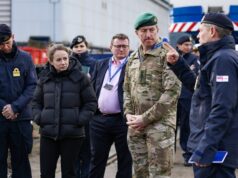
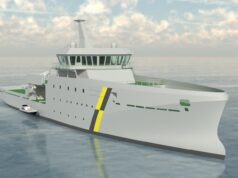
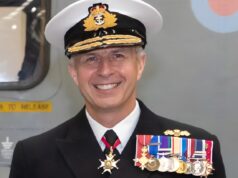
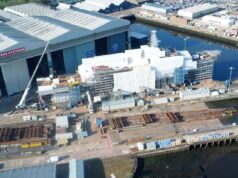

Freeloaders.
NATO creates a tragedy of the commons, even for those outside of it. Everyone gets comfortable and no one feels obligated to pay for it.
Yeah, and No. This was a comment by President Higgins, whose position has always been Tankie adjacent. He’s not speaking in any position on Government position or policy.
What does ‘Tankie adjacent’ mean. Do I need to get down with the kids or something?
Considering how NATO Countries have been effectively disarming for decades while its prime adversaries have been massively re-arming and become cocky enough to boast about the superiority in arms it gives them and meanwhile as we see in Ukraine have been able to eat through resources that even the US would have struggled to handle I really can’t comprehend the utter ignorance and crassness of this sort of statement. It’s one thing creating a World in your mind that you want to see, ironically it’s a defence mechanism, but deluding yourself that it’s for real is dangerous and self defeating, but from many it’s deeply predictable. At times I truly am beginning to think that the only logical explanation for supposedly intelligent people being so blatantly naive and short sighted is that we truly are in a simulation and some 14 year old kid is directing it all for his own boredom relieving amusement.
If you are British, see Jeremy Corbyn, he and Higgins share a lot of positions. Higgins has always been a “Western weapons and military are bad” politician, along with “all things the West does is wrong”, he has increasingly been daring the Government to spark a constitutional crisis as his time in office is ending, so far the Government has just been counting down the clock till November but are fed up with him.
Hello Mark. I hope you are well. I always thought of the Irish President as a figurehead with no political power as with e.g. the British Monarchy. Is President Higgins over stepping the mark or is he allowed to express such opinions in terms of the constitution?
Regards
Geoff
The British crown delegates its powers to the UK government. Technically the crown has lots of power that it chooses not to use. For example King Charles can declare war on another country without government content. So the crown has great power….
Tankie is essentially slang for a proper diluted lover of old fashioned authoritarian communist states..they think Stalin and Mao were right on brothers.
Yes, I don’t disagree with the idea that humanity is better using wealth and resources for education and health and social support rather than missiles and bombs, most of us want that world, but it’s so naive, if we had that world then we also do not need the police or prisons or a probation service and rehab and so on. Whilst ever the folly and bad intentions of man (mankind so yes women also) exists, and in a fragmenting, less resourced world with totalitarian states, then yes we bloody do need to protect our interests and project influence. It ain’t going to get better, just worse, unless we just roll over and give up.
All the good Irish left , the only one’s still there are either Orange men or traitors who used Winnies guns on their compatriots. As an Australian of Irish heritage i will not allow none of these their low creatures in my company.
It’s a misleading headline given the Irish presidency is a ceremonial position whose occupant has nothing to with domestic or international affairs.
Agreed.
Slow news week.
Yep basically an elected verson of the British monarchy..but without all the irritating siblings, heirs, spares and wives all hanging around leaching of the tax payer and hogging national resources.
Yawn, much of the same rhetoric from you I see.
What are you talking about, if you want a discussion then have one if you don’t, don’t comment but don’t make random insults it lowers you. Personally in my own opinion ( that I have the right to express) the state supported royal family should consist of the monarchy, and heir that is it. I respect the office of the king/queen, understand the need for the position of the prince of wales as a requirement to maintain the monarchy, but have no time at all for the wider royal family and the wider culture of privilege over service that pervades it.
But we love Prince Andrew, such a sweatless sweetie.
There’s a lot of people on benefits who drain far more, though. And the Royal Family does bring in a lot of money to the country.
The monarch brings a far bit of cash, not the wider royal family. I’m a firm believer in keeping the monarchy, it’s the wider family that need a good culling from public duties in May view we should have a monarch and the prince of wales..the prince of wales is funded from the Dutchy and the monarch does not need £86 million a year.
I will give a few examples
Prince Edward, Duke of Kent, 40th in line to the throne, total payments from HMG 18 million pound.
Princess Alexandra 56th in line to the throne, total payments from HMG 17.6 million pounds
It is valid.
It shows the political culture of Ireland -specially its establishment – which have been in bed with Genocidal ideologies for ages, from sucking to Hitler , to Communists, to Islamists.
The breathtaking nativity of a man who has no concept of what it takes to keep his country safe.
NATO is a defensive organisation , its purpose is not to start a fight but to finish it.
As distasteful as defence spending is a strong defence is the best way to avoid war.
Shame our government does not understand that.
Given that as Taoiseach, Eamon de Valera, visited the German Legation in Dublin to express condolences on the death of Adolf Hitler in 1945, I’m never surprised by the nonsense that Irish politicians spout.
It also ostracised those Irish citizens who fought in the British armed forces in WW2 for 20 or so years after the war.
As for freeloading defence – can’t but agree there as they have I money aplenty – big windfall from an EU case recently.
President Higgins is expressing his personal view and not the views of the majority of the Irish or its gov. He has always been a humanitarian and a pacifist. Noble goals but his views on international security and the security of Ireland is quite dated. Ireland is procuring a lot of new kit for it defence forces to deal with air and navel incursions. This site should report on that progress.
Some P8 would probably be a better contribution than going fast jet anyway.
As most of the Russian planes sent there are turbo prop they would actually be OK to shadow them and locate them for safety.
The missile fit they carry would be fine for deference.
If Russia do send one of their antique jet bombers then it is an RAF job.
“humanitarian and a pacifist.”
He is no such things, no evidence for that. He looks like a Pete Seeger type and his Songs For John Doe album.
He most certainly is. The biggest social justice /do gooder campaigner there is. I for one totally disagree with his left politics and position on Irish defence and security.
So he defends the Hamas pacifism? He is a “pacifist” like Pete Seeger was a “pacifist” in 1941 trying to prevent US help Great Britain fight against Nazis.
As a serving head of state, he doesn’t have the luxury of expressing a personal opinion. Any opinion he spouts in public is de facto the opinion of the Irish Govt, unless their PM comes out and says “he’s talking rubbish, ignore him”. If the PM doesn’t say that, then you must assume that it’s their official position.
Considering there is a coalition government in Ireland, one would strongly assume the parties involved are letting him talk.
As Head of State he can’t have personal views, or rather he can’t publicly express them.
I wonder why the Donald has not started on Ireland yet, could be a prime target for greater America. A small undefended country that has a massive budget surplus with America.
Perhaps we will need to rename the Irish Sea the America Sea.
Haha
Greenland has rare earth minerals and a strategic location. Ireland is a tax haven for American multinationals. The Donald has every intention of getting a US corporate tax rate through the 119th Congress substantially reducing Ireland as a tax haven for US multinationals thus bringing a significant reduction in Ireland’s tax revenue. Unlike you, the Donald sees the big picture and will be doing what he was elected to do – put America first. You had better hope that Elon Musk doesn’t convince him to go after the Trump Deranged party that you idolize that is currently in charge of a UK rapidly deteriorating before the world’s eyes. All of your snarks will come home to roost.
Ah look, the angry insecure MAGA is back spouting more uninformed rubbish. You seem to have such a fetish about the UK don’t you?
Ah, so the Trumptard has identified itself.
And Elon Musk ? You mean the immigrant who will be decimating American jobs and wealth very shortly as he laughs? We’ll be the ones watching your snarks coming home to roost.
If it had vast oil and metal resources and a trade route, he would.
Ireland does NOT think that. The far left nutter Ireland is unfortunate to have as powerless symbolic president said it, despite having no constitutional authority to do so. He has a long history of shooting his mouth off, saying dumb things, being an apologist of Putin, attacking NATO, attacking the EU, and completely contradicting Irish foreign policy. He is in a powerless office and is an irrelevance with a monster ego. He should stick to writing his crappy poetry rather than shooting his mouth off. At this stage most of Ireland is fed up of his ignorant interventions and are counting the days until his term ends in November. So, don’t think Michael D Higgins speaks for Ireland. He doesn’t. He has spent years doing nothing but promoting his fringe nutty opinions. The Irish government sets foreign policy, not Higgins. Higgins is an irrelevance with a monster ego and stunning ignorance.
Yes, the Poison Dwarf.
Thanks for the info Jim!
The whole thing is going to end in tears if and when the USA decides to margin call us, Trump didn’t dream this NATO sabre rattling up on his own it’s directed by US Banks and to be fair we deserve it how did we manage 5% with a lower population back in the day? Wasn’t immigration meant to boost GDP? Hmmmmm food for thought no?
We have bluffed and chanced our arm for far too long and now we reap what we have sown.
Immigration does increase GDP, more people = bigger economy. I can think of a group who just takes for about two decades before contributing anything economically useful, they’re called children but no one is advocating we cut those numbers, quite the opposite. I think most working age migrants start working a lot more quickly than 18 years into their stay! The issue is that as healthcare discoveries advance so does the commensurate costs. An aging population who don’t contribute as much to the economy as when they work is both a great thing (people are living longer) but does pose an economic challenge
Ireland’s vast wealth these days could fund a much better equipped armed forces even if it only spent 1% of GDP on them.
I would say that for self protection only it needs 3 ASW frigates, 1 squadron of multirole fighter jets backed up by 2 squadrons of light attack capable trainers, one of their 2 infantry brigades to be upgraded to mechanised.
The 4th Brigade was disbanded 13 years ago but there has been political support to have reinstated. It could be a good candidate for a mechanized brigade.
Ireland is an observer in the European Patrol Corvette program. Having 3 or 4 of these vessels added to the Navy would be a real boost for it.
Eire is entitled to their opinion but it counts for little seeeing they’re not a NATO member & have extremely little to defend herself.
Back in the real world we’re way too weak ourselves having skimped criminally on our forces for decade.
Unless Eire is happy to hand soveriegnty over to Russia or China.
This is the President’s view and does not represent the gov or the Irish people. He really should stay quiet on these matters but his term is coming to an end and he does not care apparently.
I was going to add my ire for this attitude, but Marks comment “Tankie adjacent” explains it all.
Another of the enemy within, glad it isn’t just us….
We can’t help blowing up sometimes when a bit of news presses the red buttons, but I suppose that if we get angry about everything, it won’t do our blood pressures or our humanity a lot of good. When we next decommission a ship unnecessarily, I’ll turn red and vent, but I’m trying to save it until then. (I’m steeling myself for the Typhoon retirements even now, thinking calm, calm, calm.)
Higgins may not speak for the Irish people as such, but unfortunately that’s how it’s going to appear to the rest of the world. Not great optics. And Sinn Fein, who enjoy a lot of support there wouldn’t be out of kilter with his sentiments on this and other subjects he loves to promote either. So, what I take from that is that whilst many on the RoI aren’t happy with Higgins comments, many will be. I feel for people in the Irish Defence Forces; give them the budget and the kit and let them do their jobs properly. But that’s not likely to happen anytime soon.
The Irish government don’t really like their armed forces. Never have, it’s a culture thing and to be honest our fault a bit…..generational and cultural trauma is a real thing..just look at Germany and Russia..
It is clear Ireland is using its NATO membership to get others to do its defence for it. This is all about Ireland saving money…. freeloading. Ireland is not a poor country it could afford a few F16s… an air search radar….etc.
Ireland is not a NATO member. You are perhaps confusing the EU with NATO.
Sorry – mention to be a reply to Rob N
Higgins was re elected in 2018, with the support of Fine Gael, Fianna Fáil and the Labour Party. He won a clear majority. To claim that he is a lone voice with no popular support is nonsense. His views were well known when he was elected and re elected.
UK people have no choice about the head of state so just have to put up with Charles’ idiotic opinions.
The Irish people chose their idiot whose views chime with Irish politicians’ continued unwillingness to spend on defence.
Constitutional neutrality doesn’t automatically mean minimal defence budget- contrast with Switzerland. Arguably, if you don’t have the protection of an alliance like NATO, you should spend more.
Lot has changed in the world since 2018 and also he has become a lot more vocal in his comments. His comments don’t pass the smell test at all currently with most Irish parties except Sinn Fein.
The Irish Defence Force is getting a lot of new kit to assert sovereignty. Last month the Irish Navy and Air corps heavily challenged the Russian ship Yantar in the Irish Sea blocking them from entering Irish EEZ. This was all with the coordination with NATO.
Even with the recent welcome increase, ROI will spend @0.3% of GDP. Even allowing for the overstatement of GDP because of US multinationals invoice routing, it’s still a tiny sum, far lower than any NATO country except Iceland which relies on the US and others for protection.
In or out of NATO, Ireland could and should do more.
You get no argument out of me on that but there is progress in defence procurement with the incremental increases in the defence budget.
The defence department is swimming in procurement orders.
Lives off Tax earned in other countries,
from whom it expects protection.